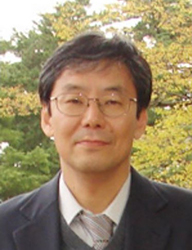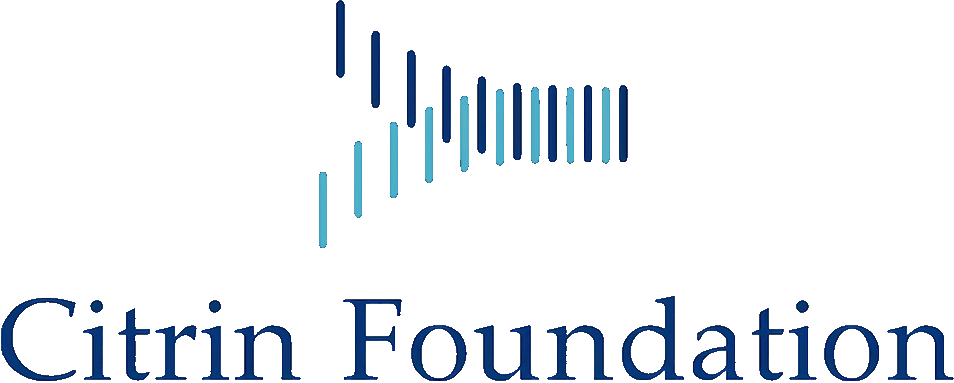LateYoshiyuki OKANO, MD, PhD
Director of Okano Children’s Clinic
It is with profound sadness that we received the news of the passing of Dr. Yoshiyuki Okano on Oct 26, 2021. We are fortunate to have crossed path with him, experiencing firsthand his unwavering dedication and kindness. It has been our great honor to have known and worked with him.
Please read the eulogy that the Foundation has written for him here.
Preparation of guide line for diet therapy of citrin deficiency and elucidation of risk factors for onset of CTLN2
Identification of the genes responsible for adult-onset citrullinemia type II (CTLN2) and the function of citrin protein have enhanced research and our understanding of this condition. Citrin deficiency is not only associated with adult-onset type II citrullinemia but also with Neonatal Intrahepatic Cholestasis caused by Citrin Deficiency (NICCD) in infants and abnormal food preference during the adaptation/compensation stage from childhood to adulthood.
Eating habits and the food content, including over-consumption of carbohydrate are highly involved in the development of CTLN2. Currently, dietary therapy is one of the most important treatments. Patients with citrin deficiency prefer protein-rich and lipid-rich foods and avoid carbohydrate-rich foods such as grains. A nutritional survey of patients is under way. Saheki et al. in 2008 reported that nutritional assessment under non-restricted food in 18 patients (aged 1 to 33) showed; 1) low total energy intake (87% of the recommended value), and 2) the energy ratio of protein: fat: carbohydrate (PFC) being 19±2%: 44±5%: 37±7%, compared with 10-15%: 25-35%: 50-60% of the healthy controls in Japan. It was also argued that the strong food preference should be kept at a minimum.
In this study, we conduct a survey for patients and their families including; 1) nutritional evaluation including energy intake and the PFC ratio; 2) investigation of food preference by presenting about 450 kinds of foods; 3) investigation of daily life challenges on sick days; 4) Quality of Life (QOL) assessment and fatigue evaluation; and 5) body weight and height. From the survey we will be able to; 1) find the optimal dietary therapy for patients; 2) examine the relationship between physique and QOL versus energy intake and PFC ratio; 3) suggest cautions for daily activities; and 4) suggest favorable foods. We will eventually create a guidebook for dietary therapy.
The survey is distributed by Patient Association for Citrullinemia, Citrin Foundation, Sendai City Hospital (Dr. Ohura), Tohoku University (Dr. Sakamoto), Chiba Children’s Hospital (Dr. Murayama), Saiseikai Yokohamashi Tobu Hospital (Dr. Inui), Shinshu University (Dr. Yazaki), and Kurume University (Dr. Watanabe). We have heard back from more than 35 families as of Sept. 2018. We are making the following observation from the food evaluation; 1) In children, the energy intake tends to be higher than the recommended value and the body mass index is within the appropriate range, whereas in adults, the energy tends to be lower than the recommended value, and the body mass index is within normal; 2) The diet in a number of patients seems to have higher protein, higher lipid, and lower carbohydrate than shown in the previous studies by Saheki et al; and 3) Some family members of patients seem to have the diet with high protein and high fat foods, probably affected by the patient’s diet in the same family. More to be analyzed.
(Updated August 2018)
Publication of Medical Treatment Guideline
Dr. Okano’s paper titled “Current treatment for citrin deficiency during NICCD and adaptation/compensation stages: Strategy to prevent CTLN2” is published on Molecular Genetics and Metabolism.
Please refer to the page – Publication of Medical Treatment Guideline for more information.


 Dr. Yoshiyuki Okano holds a MD from Yamaguchi University and a PhD in Medical Science from Osaka City University, Japan. He has worked on the molecular genetics of phenylketonuria in the Savio L.C. Woo laboratory at Baylor College of Medicine in Houston. After returning to Japan, he is conducting clinical studies and research on congenital metabolic disorders such as neonatal mass screening, PKU, galactosemia, and citrin deficiency in Osaka City University and his clinic.
Dr. Yoshiyuki Okano holds a MD from Yamaguchi University and a PhD in Medical Science from Osaka City University, Japan. He has worked on the molecular genetics of phenylketonuria in the Savio L.C. Woo laboratory at Baylor College of Medicine in Houston. After returning to Japan, he is conducting clinical studies and research on congenital metabolic disorders such as neonatal mass screening, PKU, galactosemia, and citrin deficiency in Osaka City University and his clinic.